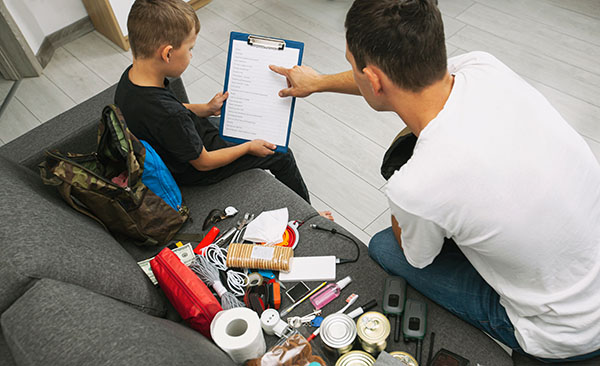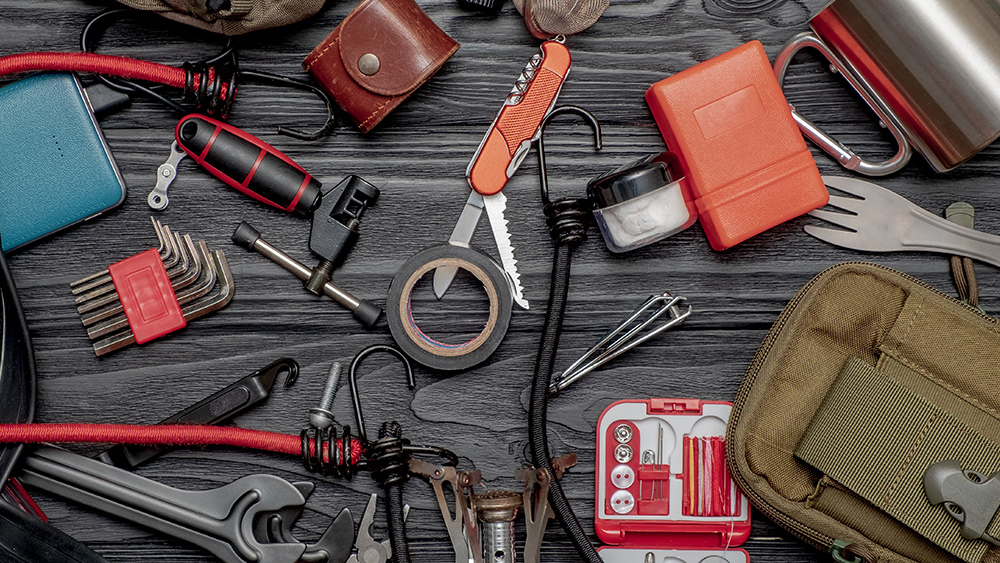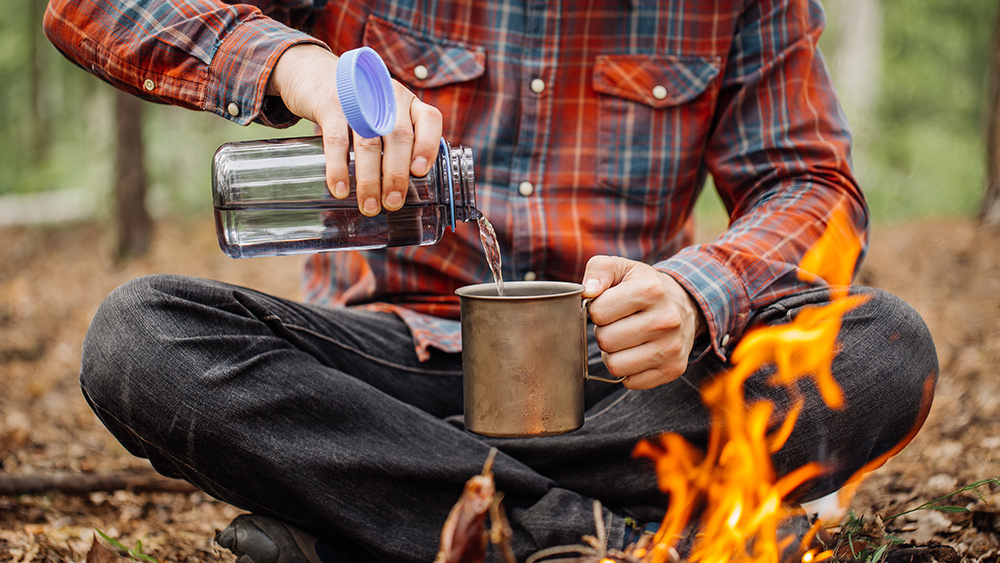More than just flavor: 20 Little-known uses for salt
By Zoey Sky // Jul 06, 2019
TAGS: emergency preparedness, food preparation, Food storage, food supply, goodfood, goodhealth, homesteading, how-to, ingredients, long term storage, natural cleaning products, off grid, preparedness, prepper, prepping, remedies, salt, self sufficiency, self-reliance, survival, sustainable living, Table Salt

Salt is a staple in the kitchen in more ways than just to enhance the flavor of dishes. Here are 20 different ways to use salt around your homestead. (h/t to ModernSurvivalBlog.com)
- Clean cast iron skillets – To clean a cast iron skillet, pour 1/4 cup of salt while the skillet is still warm. Carefully scrub the skillet using a wire brush. When you're done, wipe the skillet clean. Let it dry, then rub a light coat of vegetable oil on it before putting it away.
- Clean coffee- or tea- stained cups – Make a paste combining salt and a dab of liquid castile soap (or dish soap.) Dip a soft cloth in the mixture, then wipe your cups and mugs. The sharp-edged salt crystals will scrub away the coffee and tea stains on your mugs.
- Clean greasy pans – Clean greasy iron pans by sprinkling a 1/16-inch layer of salt on them. Let the salt sit for five minutes, then wipe it off. The salt will absorb most of the grease, making the pan easier to wash with soap and water.
- Clean a gunky iron bottom – Sprinkle a bit of salt on a piece of paper then run a warm iron over it. This will remove rough, sticky spots on your iron.
- Clean teeth – If you run out of toothpaste when SHTF, combine one part fine salt and two parts baking soda. Dip your toothbrush into the mixture then brush as usual.
- Deodorize shoes – To keep canvas shoes smelling fresh, sprinkle a bit of salt in them occasionally. The salt will help the shoes stay dry and get rid of funky odors.
- Eliminate fishy odors – If your hands smell fishy after preparing food, rub your hands with a lemon wedge dipped in salt. Rinse with water.
- Get rid of ants – Sprinkle salt at doorways, window sills, and other areas where you see ants sneak into your house. Ants don’t like walking on salt, and this should keep them out of your house.
- Get rid of onion smell – Wet your hands with water then sprinkle a bit of salt on them. Rub your hands together as if you were washing them, then rinse to get rid of the smell of onions.
- Get rid of poison ivy – To eliminate poison ivy in your garden, mix three pounds of salt with a gallon of soapy water. Carefully apply the mixture to leaves and stems using a sprayer.
- Keep cheese from getting moldy – Before you refrigerate cheese, wrap it in a cloth dampened with saltwater. This will prevent mold from forming on the cheese. (Related: A guide to repackaging salt for long-term storage.)
- Keep cut flowers fresh – Add a bit of salt to the water in a flower vase. This helps your cut flowers stay fresh for longer.
- Peel eggs – Boil eggs in salted water. Once the eggs are boiled, they'll be easier to peel.
- Relieve bee stings – After being stung, immediately wet the spot with water then cover it with salt to relieve the pain.
- Remove pinfeathers from chickens – Remove pinfeathers easily from a chicken by rubbing the chicken skin with salt first.
- Remove soot on your fireplace – Occasionally throw a handful of salt on the flames in your fireplace. This will loosen soot from the chimney and the salt produces a bright yellow flame.
- Scaling fish – To make fish easier to descale, soak it in saltwater first. This will make fish scales come off easier.
- Soothe sore throats – You can relieve a sore throat using salt. Make a "liquid lozenge" by mixing 1/4 teaspoon of salt and half a cup of warm water. Mix well, then gargle the mixture several times daily.
- Tame a grill flare-up – Toss a bit of salt on the flames from food dripping in grills. This will reduce the flames and calm the smoke without cooling the coals.
- Test egg freshness – Add two teaspoons of salt in a cup of water, then mix well. If an egg is fresh, it will sink. Eggs that float to the surface are no longer suitable for consumption.
Keep salt in your stockpile so you have access to a useful spice and an all-around cleaning ingredient when SHTF.
Sources include:
Related Topics
emergency preparedness food preparation Food storage food supply goodfood goodhealth homesteading how-to ingredients long term storage natural cleaning products off grid preparedness prepper prepping remedies salt self sufficiency self-reliance survival sustainable living Table SaltLatest News
05/23/2023 / By Ethan Huff
05/23/2023 / By Ethan Huff
05/23/2023 / By Ethan Huff
05/23/2023 / By Kevin Hughes
Related News
05/04/2023 / By Zoey Sky
04/28/2023 / By Zoey Sky
01/10/2023 / By Zoey Sky
01/06/2023 / By Olivia Cook
01/02/2023 / By Zoey Sky
12/14/2022 / By Zoey Sky
12/13/2022 / By Kevin Hughes
Take Action:
Support NewsTarget by linking to this article from your website.
Permalink to this article:
Copy
Embed article link:
Copy
Reprinting this article:
Non-commercial use is permitted with credit to NewsTarget.com (including a clickable link).
Please contact us for more information.
Please contact us for more information.





















